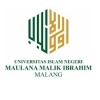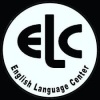English Extracurricular Activities in Developing Language Intelligence at SMP Plus Al Munawaroh Jember
Abstract
Extracurricular activities are educational activities that take place outside of traditional classroom settings. These activities take place inside and/or outside of the school environment in order to broaden knowledge, improve skills, and internalize religious values or laws, as well as local, national, and global social norms. This is a qualitative study, which stresses the meaning and process of an activity rather than the outcome of an activity. By referring to the data taken from teacher and students’ involvement in the extracuricular activities and based on the results of observations and interviews, this study reveals that the majority of students are engaged in the extracuricular activities and benefit greatly from them. Aside from that, the activity facilitated teachers in carrying out coaching, direction, care, and supervision in order to achieve the desired results. Students' language intelligence in learning English at SMP Plus Al Munawaroh Tempurejo Jember was formed by an acivity to communicate with others, both with their peers and with their teachers, using English even though it was often mixed up with their native language. Students were also engaged to perform their learning outcomes in many stages of learning.
Full Text:
PDFReferences
Armstrong, T. (2013). Multiple intelligences in the classroom; translated by Dyah Widya Prabaningrum; Kecerdasan Multiple di Dalam Kelas. Jakarta: PT. Indeks.
Aqib, Z. and Sujak. (2011). Panduan & Aplikasi Pendidikan Karakter. Bandung: Yrama Widya.
Asmani, Jamal Ma’mur. (2009). Manajemen Pengelolaan dan Kepemimpinan Pendidikan Profesional. Yogyakarta: DIVA Press.
Asrori, A. (2020). Psikologi Pendidikan Pendekatan Multidisipliner. Purwokerto: Pena Persada.
Azies, F, and Alwasilah, A.C. (2000). Communicative Language Learning. Bandung: PT. Rosdakarya
Bynon, T. (1990). Historical Linguistics. London: Cambridge University Press.
Campbell, L. (1998). Historical Linguistics (An Introduction). Edinburg University Press.
Creswell, J. W. (2007). Research design: Qualitative, quantitative, and mixed methods approach (2nd ed.). Thousand Oaks, California: Sage Publications, Inc.
Creswell, J. W. (2012). Educational Research: Planning, Conducting, and Evaluating Quantitative and Qualitative Research (4th ed.). New Jersey: Pearson-Merill Prentice Hall.
Daryanto. (2013). Inovasi Pembelajaran Efektif. Bandung: Yrma Widya.
Denzin, N. K. & Y. S. Lincoln (Eds.). (2011), The Sage Handbook of Qualitative Research (4th ed.). Thousand Oaks: Sage Publications, Inc.
Djiwandono, P. I. (2009). Strategi belajar bahasa Inggris: belajar menyimak, membaca, menulis dan berbicara. Jakarta: Indeks.
Fachrurrozi, Aziz and Erta Mahyuddin. (2011). Pembelajaran Bahasa Asing. Metode Tradisional dan Kontemporer. Jakarta: Bania Publishing.
Gagné, R.M. and Briggs, L.J. (1979) Principles of Instructional Design. 2nd Edition, Holt. Rinehart, and Winston, New York.
Gardner, H. (1983). Frames of Mind: The Theory of Multiple Intelligences. New York: Basic Books.
Hasan, Iqbal. (2004). Analisis Data Penelitian Dengan Statistik. Jakarta: Bumi Aksara.
Hasan, M.I. (2002). Pokok-pokok Materi Metodologi Penelitian dan Aplikasinya. Bogor: Ghalia Indonesia.
Hidayat, A.A. (2006). Philosophy of Language. Bandung: PT. Rosda Karya.
Iskandarwassid and Sunendar, D. (2008). Strategi Pembelajaran Bahasa. Bandung: Rosdakarya.
Joscelyne, A. & Wacker, P. (2019). The sound of intelligence. http://www.lt-innovate.org/content/what-language-intelligence. Retrieved 16 February 2023
Lestari, R.Y. (2016). The Role of Extracurricular Activities in Developing the Citizenship Character of Students. Journal: Educational Technology
Maccoby, E.E & Mcloby. (2008). The Two Sexes: Growing Up a Part, Coming Together. Cambridge: Harvard University Press
Madyawati, L. (2016). Strategi Pengembangan Bahasa pada Anak. Jakarta : Prenadamedia Group.
Mulyana, D. (2010). Qualitative Research Methodology. Bandung: PT. Rosdakarya
Pratiwi, A. and Gartika. (2011). How To Write In English Correctly. Bekasi: Laskar Laksana.
Prawira, P. A. (2012). Psikologi Pendidikan Dalam Perspektif Baru. Jogjakarta : Ar- Ruzz Media.
Sugiyono. (2010). Quantitative, Qualitative and R&D Research Methods. Bandung: Alphabeta.
Sujiono, Y.N. (2010). Bermain Kreatif Berbasis Kecerdasan Jamak. Jakarta: PT Indeks.
Suyanto, K.K.E. (2007). English for Young Learners. Jakarta: PT Bumi Aksara.
The Ministry of National Education Republic of Indonesia (depdiknas). (2003). Act of the Republic of Indonesia on National Education System. Jakarta: Depdiknas
Tirtaraharja, U. and La Sulo. S.L. (2005). Introduction to Education. Jakarta: PT Rineka Cipta.
Uno, H.B., and Masri, K. (2009). Mengelola Kecerdasan dalam Pembelajaran. Jakarta: Bumi Aksara.
UPI Education Administration Lecturer Team. (2013). Manajemen Pendidikan. Bandung: Alphabeta.
Wahab, A.Z. (2012). Social Studies Teaching Methods and Models. Bandung: Alphabet.
Wiyani, Novan Ardy. (2018). Growing Character Education in Elementary Schools (Concepts, Practices, and Strategies). Purwokerto: Stain Press.
DOI: https://doi.org/10.18860/jeasp.v6i2.23328
Refbacks
- There are currently no refbacks.

This work is licensed under a Creative Commons Attribution-ShareAlike 4.0 International License.







Editorial Office:
Pusat Pengembangan Bahasa
Program Khusus Pengembangan Bahasa Inggris (PKPBI)
Universitas Islam Negeri Maulana Malik Ibrahim Malang
Gedung C lantai 1
Jl. Gajayana No 50 Kota Malang, Jawa Timur, Indonesia
Kode Pos 65144, Telp/Fax : (0341) 570872
Email: jeasp@uin-malang.ac.id
JEASP : Journal of English for Academic and Specific Purposes is licensed under a Creative Commons Attribution-ShareAlike 4.0 International











